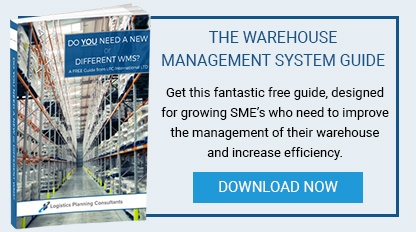
When you're assessing the cost implications and potential benefits of purchasing, or leasing, a new Warehouse Management System (WMS), you'll need to consider its likely lifespan. So, when will your new WMS need to be replaced, and how can you find one that will stand the test of time?
Factors Affecting A WMS's Lifespan
A new warehouse management system represents a significant investment, particularly for a small or medium-sized company. Therefore, when you purchase one, you'll want to make sure that it will last. As a rough guide, you can expect a WMS's lifespan to be between eight and ten years.
However, some systems will probably need to be replaced earlier than that: It will also depend on how your operation develops or changes.
Legacy Systems
These are systems if still on the market are outdated and superceded by more modern technology and versions. While they're often cheaper than their newer counterparts, they're unlikely to last as long.
That's because you won't receive updates for them, with the result that they quickly become obsolete, if not already as new technologies emerge.
Bespoke Systems
Opting for a WMS that's been designed to suit your company's unique needs can help you ensure your warehouse is functioning optimally.
However, it will be more expensive to obtain upgrades for 'one-off' systems and maintenance support is likely to be more costly, as it requires working with a software developer on an ongoing basis.
Systems Without User Configuration Options
If your chosen WMS doesn't have user configuration capabilities, you won't be able to make changes to it as your business profiles change.
That means that you may eventually have to pay the vendors to make code-level alterations or replace your system earlier than you'd like.
How To Find a WMS That Will Last
To ensure that your WMS lasts as long as possible, so that you can make the most of your money, look for one which:
- Is capable of supporting new platforms;
- Can be adapted to suit the latest warehouse management and operational trends;
- Is scalable and easy to upgrade;
- Ideally Is user configurable, so you can make changes to it when required; and
- Match your support package so if you need them you get periodic upgrades which improve the performance of the software.
Open-Source Or Proprietary?
It's also worth considering whether an open-source WMS is more appropriate for your business than a proprietary system. An open-source WMS features software created by a range of companies and individuals, which is shared with users free of charge.
If your business employs developers, they'll be able to use that software to customise your system, which could increase its longevity.
However, you won't have the support that you'd get when you procure a proprietary system, and some software creators may fail to provide the updates you require.
Find Out More
If you're looking for a new WMS, download our handy Warehouse Management System Guide. It's packed with information to help you pick a system that meets your needs. Image source: Pixabay
Image source: Pixabay


